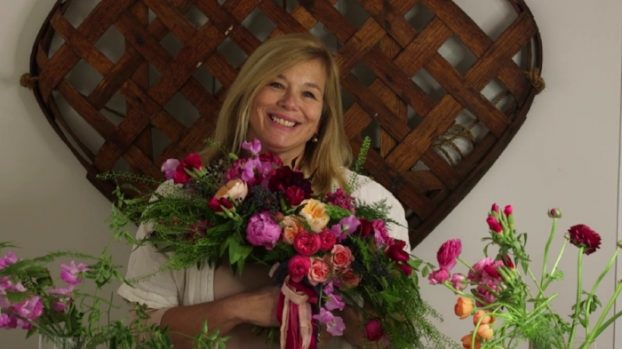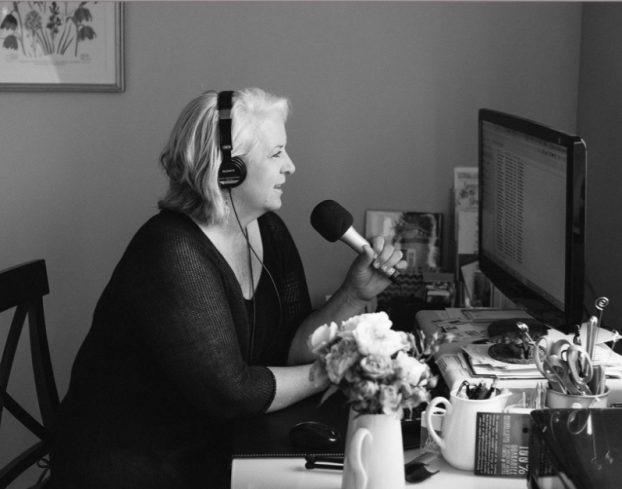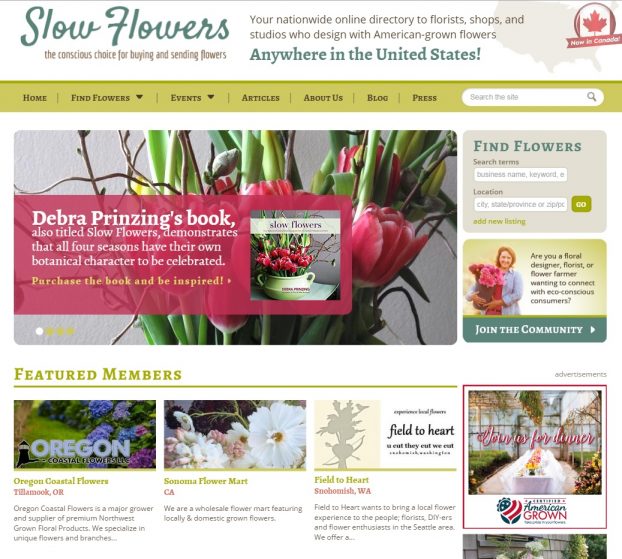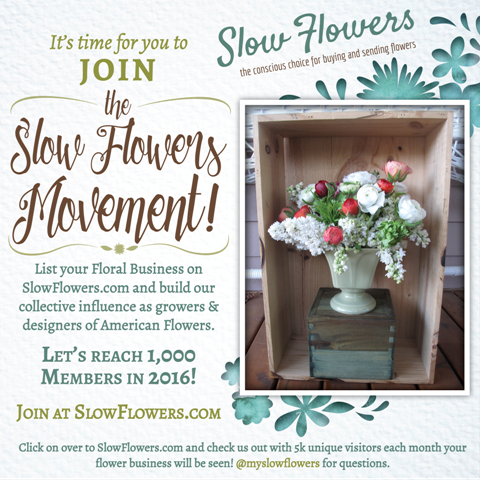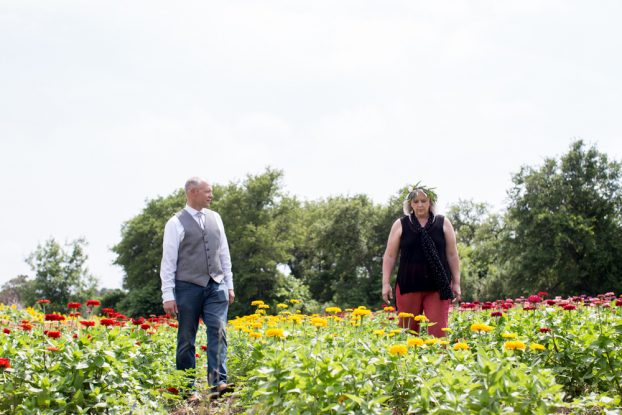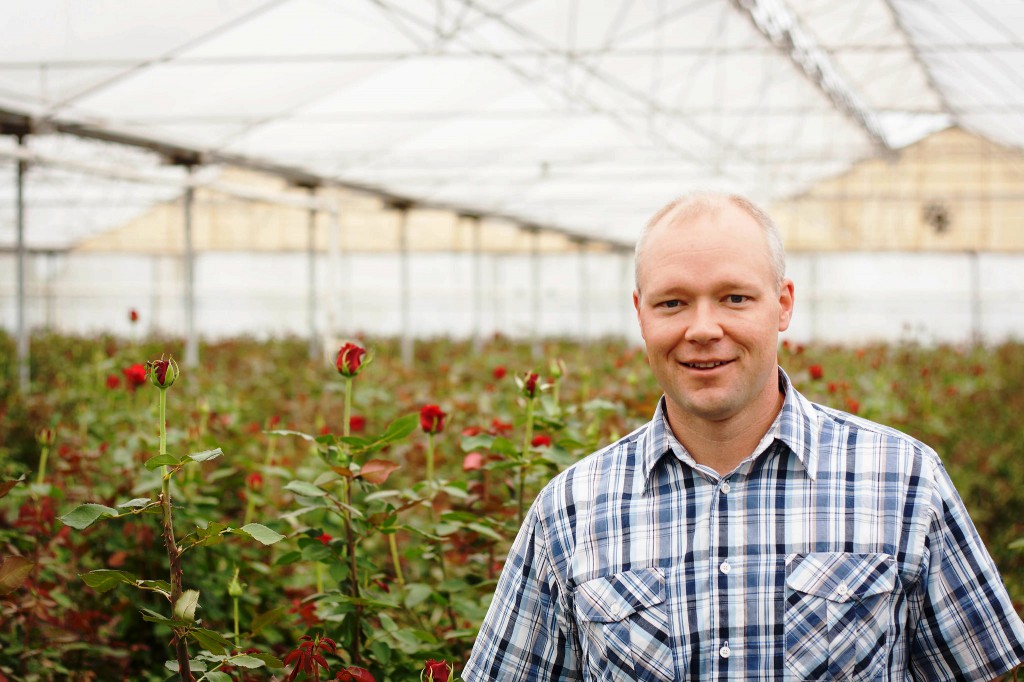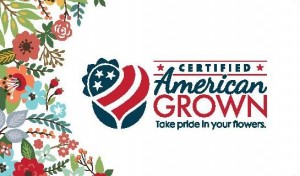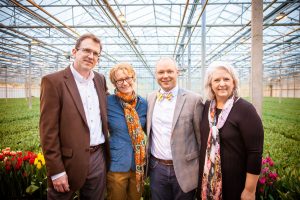Podcast: Play in new window | Download
Subscribe: Apple Podcasts | Podcast Index | RSS | More
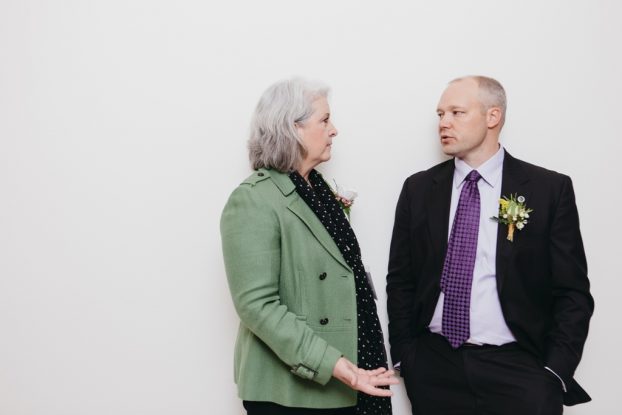
I’ve asked Kasey Cronquist to update us on the current policy landscape as it relates to flower farming, with details from the recent Flower Farmer Fly-In efforts.
You’ve heard me discuss my past trips to Washington, D.C., to join a group of flower farmers on the annual “fly in” to reach out to policymakers on Capitol Hill and at agencies like the USDA. Some exciting things have taken place, including (for me), meeting one of my two senators, Senator Patty Murray.
I’ve also had the privilege to speak at briefings about cut flowers, including one at the launch of the Congressional Cut Flower Caucus, along with former Representative Lois Capps and Rep. Duncan Hunter.
So do those efforts really matter? Today’s guest, Kasey Cronquist, spends a lot of his energy at the vortex of this question and I know he would argue, YES, these efforts matter more than ever.
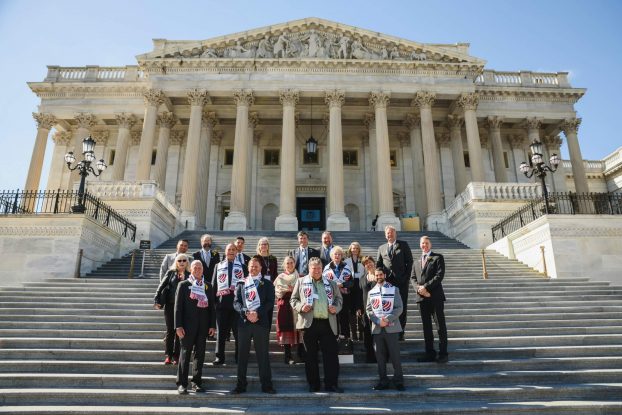 Kasey is the CEO of the California Cut Flower Commission, a position he’s held for nine years. He was in that position the first time I cold-called him back in 2010 for an organic flowers article I was reporting on for the Los Angeles Times. Since then, we’ve spent hours discussing the American grown flower landscape, both for my own articles and blog posts, but also for this podcast and Kasey’s own blog and writings.
Kasey is the CEO of the California Cut Flower Commission, a position he’s held for nine years. He was in that position the first time I cold-called him back in 2010 for an organic flowers article I was reporting on for the Los Angeles Times. Since then, we’ve spent hours discussing the American grown flower landscape, both for my own articles and blog posts, but also for this podcast and Kasey’s own blog and writings.
When Kasey threw out the seed of an idea that a national effort to promote domestic and local flowers could take place, I was there. It was at a working group that met prior to the 2012 Association of Specialty Cut Flower Growers conference in Tacoma.
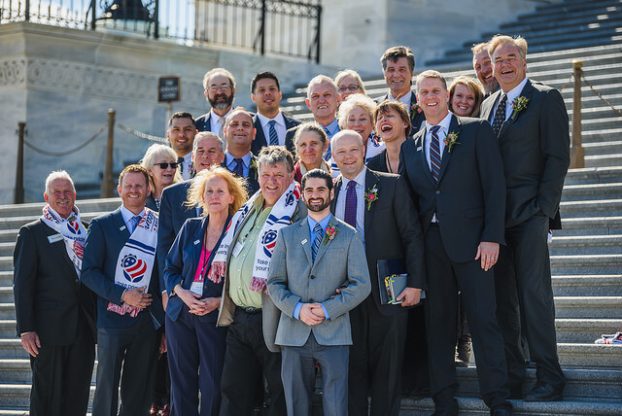 Over the following year, I participating with him and others to formulate the grassroots organization that became Certified American Grown. I remember spending an entire Sunday in 2013, sitting at Diane Szukovathy of Jello Mold Farm’s kitchen table, as we sketched out our vision for the language that would eventually be used to solicit involvement for the Certified program. The following year, in 2014, the program was launched and when the advisory council was formed, I was asked to join as the non-farmer consumer representative.
Over the following year, I participating with him and others to formulate the grassroots organization that became Certified American Grown. I remember spending an entire Sunday in 2013, sitting at Diane Szukovathy of Jello Mold Farm’s kitchen table, as we sketched out our vision for the language that would eventually be used to solicit involvement for the Certified program. The following year, in 2014, the program was launched and when the advisory council was formed, I was asked to join as the non-farmer consumer representative.
Suffice it to say that Kasey was the engine that drove this train to where it is today. Certified American Grown produces the Field to Vase Dinners, now in year three; it has supplied flowers for the past three “Dream Weddings” by The Knot; it has been instrumental in all advocacy efforts to see the past and current White House use American-grown flowers; and it has flowered the First Lady’s Luncheon with all American-grown flowers, among so many other projects.
In his role as administrator for the Certified American Grown program, Kasey led the recent “fly in” with the largest group of flower farmers to date. I missed the trip this year, but I’ve heard that some incredible strides were made with the Congressional Cut Flower Caucus and more, so I asked Kasey to share an update here.
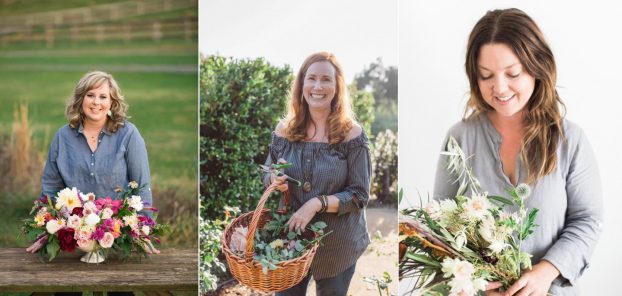
Kelly Shore, Margaret Lloyd and Christy Hulsey, the dream team of floral designers who will produce the First Lady’s Luncheon florals using all American-grown botanicals.
But I’m very excited that the next big item to celebrate will be the First Lady’s Luncheon, a bipartisan, non-taxpayer-funded annual charity event that will feature American Grown Flowers, designed by Kelly Shore, Margaret Lloyd and Christy Hulsey — all three are members of both Slow Flowers and the Chapel Designers, and I know they will do something brilliant in early May — watch their feeds to follow along. Here’s the recent announcement:
An annual tradition since 1912, the luncheon is put on by The Congressional Club and attended by nearly 1,400 people. The Congressional Club is an organization representing the spouses of members of Congress, cabinet members and the Supreme Court.Last year, Certified American Grown Flowers for the 160 centerpieces at the event came from California, Oregon, Washington, Florida and Virginia.This year, Certified American Grown will be working with a team of designers lead by Kelly Shore of Petals by the Shore, Margaret Lloyd of Margaret Joan Florals and Christy Hulsey of The Colonial House of Flowers.The design team is currently working with the Congressional Club’s luncheon committee on selecting the American Grown Flowers that will be used and working with farms who will be able supply those flowers in early May.“We have a great team coming together to help make this year’s First Lady’s Luncheon another beautiful success,” explained Certified American Grown Administrator Kasey Cronquist. “We appreciate the Congressional Club’s commitment to source all American Grown Flowers for this wonderful tradition.”
Here are ways you can follow and find Kasey Cronquist and his many projects:
Subscribe to announcements from Certified American Grown.
Subscribe to Kasey’s blog updates #OriginMatters
Follow American Grown Flowers on Instagram
Learn more about the Congressional Cut Flowers Caucus
Listen to Episode 235, my interview with Bill Frymoyer, the key D.C. player who advocates for domestic flower issues.
Next up, a quick conversation with Holly Heider Chapple. About a month ago, Susan McLeary of Passionflower Events, a past guest of this podcast, sent me an email out of the blue. It went like this:
I just had to write to tell you about something that Holly Chapple’s got going on…
She’s released a video tutorial on a chicken wire mechanic that she’s developed.
Of course, chicken wire is NOT new, and most florists are very familiar with it, but it’s the way that she’s using it that I believe is incredibly game-changing.
We all know how to make a ball of it, and stuff it into a low container. This is widely done, and results in a stable, transportable arrangement.
The game-changing bit is she’s developed a way to make elevated arrangements using wire that results in very large, stable, light, transportable arrangements that do not require foam.
In all my days, I haven’t seen any others do this, and honestly, large elevated arrangements are typically designed with large chunks of foam- even by those of us who want to eliminate it’s usage.
It just wasn’t practical to design big daddy elevated pieces on site, or in water. It was hard to achieve a large, airy result, hard to transport them, time consuming, etc….
I really feel that the floral community would gain so much by knowing this, but not sure how to get the word out.
I thought I’d reach out to you- in case you didn’t already know this is going on…I really believe this can change the way florists design, and dramatically reduce foam usage!
In Holly’s video course, she also shows how to make a cascade bouquet without a foam holder, and a new take on designing low pieces with wire.
Holly used to produce massive events, using tons of foam each year, and she has turned this around completely- think of the ripple this could have!! Ok! I hope you find this helpful. I just think it’s incredible.
I thoroughly respect Susan’s advice and so when I had a chance to speak with Holly about the new video course, I asked if she would be willing to let me preview it to share my thoughts with you.
Holly’s new video course teaches her foam-free method of designing cascading bouquets and large-scale elevated arrangements. See the sneak peek above.
In the nearly one-hour long video tutorial, called Creating “Hollyish” Floral Designs Holly demonstrates how she creates her ‘Hollyish’ bouquets.
From wiring stems and flower placement in the signature Holly Heider Chapple Egg mechanic to finishing with the perfect ribbon wrap, you’ll learn to create a garden style bouquet that will delight your clients. Holly also shares her innovation for creating foam-free elevated and compote designs.
The course is available in English only. (Content is available online only and cannot be downloaded.) The price for the course is $189.00. Congratulations on bringing this idea to the floral world, Holly!
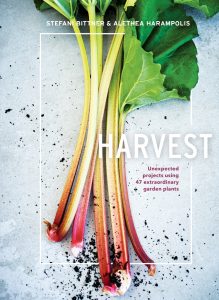 And thank you for joining me today. This week, we drew names for those who entered our drawing for two copies of HARVEST, the beautiful and informative book by recent Podcast guests, Stefani Bittner and Alethea Harampolis of the Homestead Design Collective.
And thank you for joining me today. This week, we drew names for those who entered our drawing for two copies of HARVEST, the beautiful and informative book by recent Podcast guests, Stefani Bittner and Alethea Harampolis of the Homestead Design Collective.
We asked listeners to post about their most useful garden plant in the comment section at debraprinzing.com.
From those who took the time to comment, we’ve randomly selected two lucky winners:
Hannah Morgan of Fortunate Orchard, based in Seattle; and listener Ashley Kirnan. Congratulations, Hannah and Ashley and thank you to Ten Speed Press for the donation!
Ladies, your books will be in the mail soon!
 The Slow Flowers Podcast has been downloaded more than 175,000 times by listeners like you. In fact, we ended the month of March 2017 with more than 11,000 downloads — the all-time highest monthly listenership ever. THANK YOU to each one of you for downloading, listening, commenting and sharing. It means so much.
The Slow Flowers Podcast has been downloaded more than 175,000 times by listeners like you. In fact, we ended the month of March 2017 with more than 11,000 downloads — the all-time highest monthly listenership ever. THANK YOU to each one of you for downloading, listening, commenting and sharing. It means so much.
If you value the content you receive each week, I invite you to show your thanks and support the Slow Flowers Podcast with a donation — the button can be found on our home page in the right column. Your contributions will help make it possible to transcribe future episodes of the Podcast.
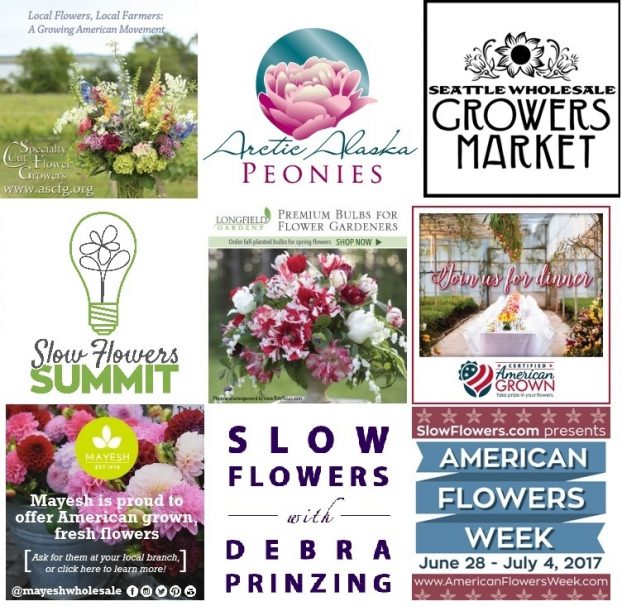 This podcast is brought to you by Slowflowers.com, the free, nationwide online directory to florists, shops, and studios who design with American-grown flowers and to the farms that grow those blooms. It’s the conscious choice for buying and sending flowers.
This podcast is brought to you by Slowflowers.com, the free, nationwide online directory to florists, shops, and studios who design with American-grown flowers and to the farms that grow those blooms. It’s the conscious choice for buying and sending flowers.
And thank you to our lead sponsor for 2017: Certified American Grown Flowers. The Certified American-Grown program and label provide a guarantee for designers and consumers on the source of their flowers. Take pride in your flowers and buy with confidence, ask for Certified American Grown Flowers. To learn more visit americangrownflowers.org.
Thank you to Arctic Alaska Peonies, for supporting Slow Flowers. Arctic Alaska Peonies is a cooperative of 50 family farms in the heart of Alaska providing high quality, American Grown peony flowers during the months of July and August. Visit them at arcticalaskapeonies.com
Thank you to our wonderful friends at the Seattle Wholesale Growers Market, a farmer-owned cooperative committed to providing the very best the Pacific Northwest has to offer in cut flowers, foliage and plants. The Growers Market’s mission is to foster a vibrant marketplace that sustains local flower farms and provides top-quality products and service to the local floral industry. Find them at seattlewholesalegrowersmarket.com
Thank you to the passionate plantspeople at Longfield Gardens. Longfield Gardens provides home gardeners with high quality flower bulbs and perennials. Their online store offers plants for every region and every season, from tulips and daffodils to dahlias, caladiums and amaryllis. Visit them at lfgardens.com.
And thank you Association of Specialty Cut Flower Growers. Formed in 1988, ASCFG was created to educate, unite, and support commercial cut flower growers. It mission is to help growers produce high-quality floral material, and to foster and promote the local availability of that product. Learn more at ascfg.org.
I’m Debra Prinzing, host and producer of the Slow Flowers Podcast. Next week, you’re invited to join me in putting more American grown flowers on the table, one vase at a time. And If you like what you hear, please consider logging onto Itunes and posting a listener review.
The content and opinions expressed here are either mine alone or those of my guests alone, independent of any podcast sponsor or other person, company or organization.
The Slow Flowers Podcast is engineered and edited by Andrew Brenlan. Learn more about his work at KineticTreeFitness.com.









